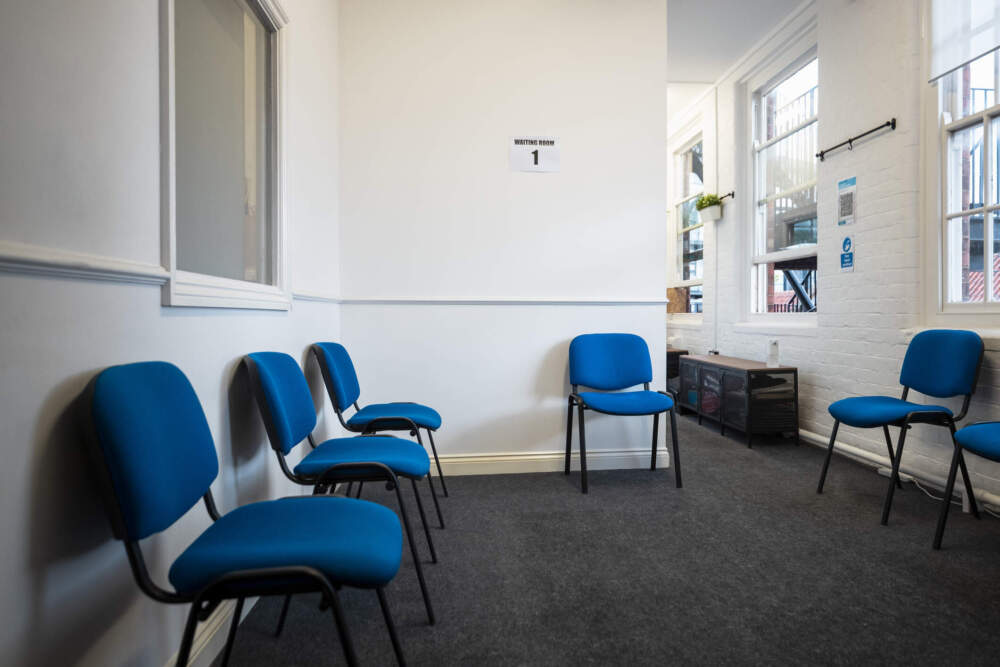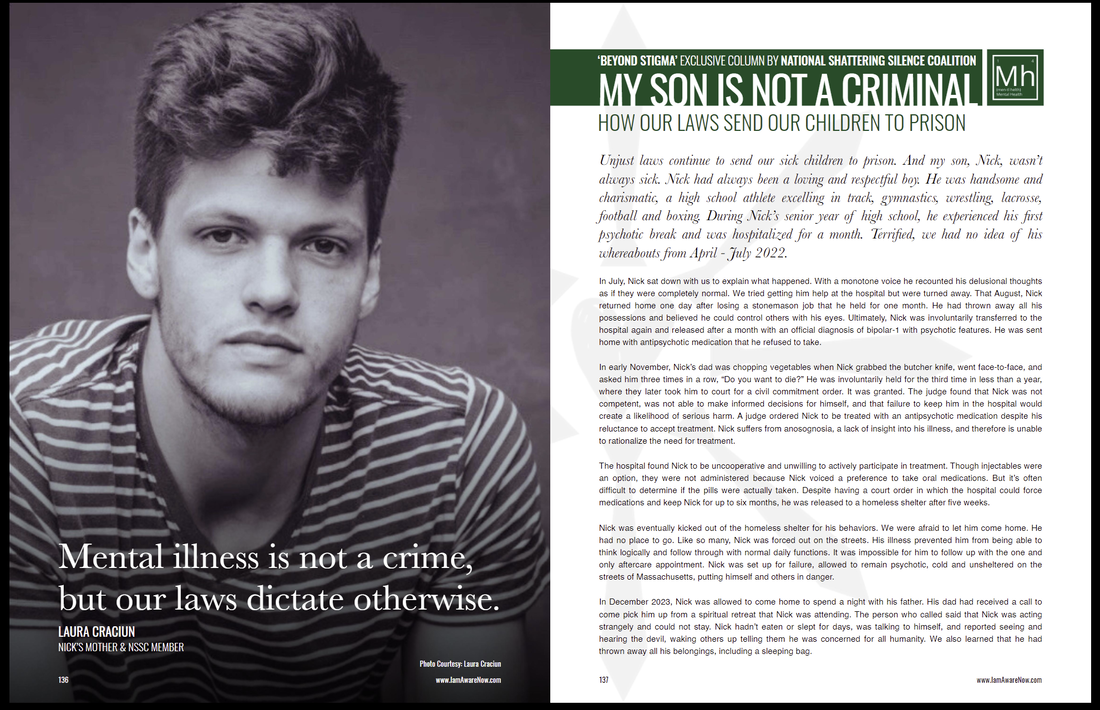|
by member Jason Jepson
'I Was Hazed in the Army for My Bizarre Behavior. Then I Got a Diagnosis' To read the article, follow this link to Newsweek's online article.
0 Comments
Article excerpt taken from WBUR.org On Point Website available here.
By NPR staff Jonathan Chang and Deborah Becker Several states have changed their policies in recent years to make involuntary commitment easier for people with severe mental illnesses. But forced treatment still raises civil rights questions, with some saying it can harm, not help patients. Today, On Point: The ethical dilemma of involuntary mental health treatment. Guests Will James, host of KUOW and The Seattle Times’ “Lost Patients” podcast. Dominic Sisti, associate professor of medical ethics and health policy at the University of Pennsylvania. Director of the Scattergood Program for the Applied Ethics of Behavioral Health Care. Also Featured Laura Craciun, a mother who struggles with bipolar I disorder with psychotic features and anosognosia. Stefanie Lyn Kaufman-Mthimkhulu, founder and executive director of Project LETS. Transcript Part I DEBORAH BECKER: This is On Point. I’m Deborah Becker in for Meghna Chakrabarti. Understanding mental illness of a loved one often means looking back. JON CHANG: Tell me about Nick as a child. I mean, what was he like growing up? What kind of son was he? LAURA CRACIUN: Adorable. He looked like a little Ewok in a Star Wars film. And when he was younger, he would excel at any sport we introduced to him, including gymnastics and hip-hop dance, and was the best charades player I'd ever seen, and just so creative. BECKER: That’s Laura Craciun, an artist on Cape Cod, speaking with On Point producer Jonathan Chang about her son Nick. We should note this story contains descriptions of violence. Nick was an athlete with a big heart, Laura says. … But there was something else that clouded over his childhood. CRACIUN: The thing that plagued him most of his life, really, was that he could hear and see things that weren't real. And that started very early on in diapers. We would see him sometimes leave the house, saying there was something in it, and he didn't feel safe. And he also had anxiety that we were going to die... To continue reading, follow this link to the NPR interview here. by member Laura Craciun
Unjust laws continue to send our sick children to prison. And my son, Nick, wasn’t always sick. Nick had always been a loving and respectful boy. He was handsome and charismatic, a high school athlete excelling in track, gymnastics, wrestling, lacrosse, football and boxing. During Nick’s senior year of high school, he experienced his first psychotic break and was hospitalized for a month. Terrified, we had no idea of his whereabouts from April-July 2022. In July, Nick sat down with us to explain what happened... To read the rest of the story, follow this link to AwareNow's online Issuu magazine. |





 RSS Feed
RSS Feed
